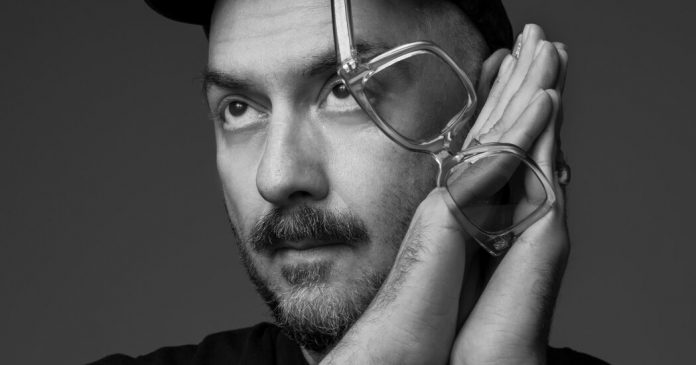There was a time when Serebrennikov benefited from the system that finally turned on him. He moved to Moscow from Rostov-on-Don in 2001, when the state — and that is exhausting to recollect now — was wanting to help the humanities. For a decade, Serebrennikov staged performances at Moscow’s largest theaters and ultimately caught the eye of Vladislav Surkov, a high Putin adviser who coined “sovereign democracy,” an uncommon time period for a system freed from Western meddling and solely democratic to the extent its leaders allowed. Surkov noticed artists as a crucial instrument in that association: as each proof of Russia’s modernity and its tentative endurance towards free expression. In 2011, Serebrennikov was put answerable for Platform, a brand new federally funded arts pageant, and, a 12 months later, the Gogol Heart, a sleepy theater that he become a hub for avant-garde efficiency. Concurrently, he attended anti-Putin protests and staged an opera that parodied Kremlin politics. He even tailored a novel that Surkov wrote beneath a pseudonym, however made it right into a commentary on corruption.
As Putin muscled his manner again into energy in 2012, mass protests broke out throughout Russia. Putin demoted Surkov and gave the job of Minister of Tradition to Vladimir Medinsky, a nationalist who warned towards artwork that was at odds with “conventional values.” The identical 12 months, members of the feminist punk group Pussy Riot had been arrested and tried. Round this time, Serebrennikov made his first try at a Tchaikovsky biopic and was denied state funds due to the script’s gay themes. (Serebrennikov has spoken out in help of Russia’s beleaguered L.G.B.T. group, and his movie offers with the composer’s closeted sexuality.) As an alternative, he acquired financing from Abramovich and in 2016 launched “The Pupil,” which mocked the nation’s growing conservatism and spiritual hypocrisy. The following 12 months, Serebrennikov was accused of fraud involving a state subsidy of $1.9 million for Platform.
What we take into account earlier than utilizing nameless sources.
How do the sources know the knowledge? What’s their motivation for telling us? Have they proved dependable previously? Can we corroborate the knowledge? Even with these questions happy, The Occasions makes use of nameless sources as a final resort. The reporter and at the least one editor know the id of the supply.
“I didn’t change; the nation modified,” Serebrennikov instructed me. The director began to note the propaganda machine churning towards him when, in 2014, whereas at dinner with mates, he seemed up and noticed himself on the state information channel, amongst different high tales. “We turned up the quantity, and it was actually: America is dangerous, the Olympics in Russia are good, and do we actually want a director like this?” His mates checked out him as if he had been a useless man. “You start to know that some darkish clouds are beginning to collect, however you don’t have any thought why,” he mentioned.
Serebrennikov was arrested in St. Petersburg, the place he was filming “Summer time,” a nostalgic have a look at the Soviet Union’s underground music scene. He entered his resort room late at evening and heard a knock on the door, assuming it was one of many crew. As an alternative it was six officers from the F.S.B., Russia’s state safety company, who took Serebrennikov right into a van and drove him the eight hours again to Moscow. Nobody knew he was gone till morning, when Stewart, his producer, requested the resort’s supervisor to open Serebrennikov’s room and located that his mattress hadn’t been slept in.
In Moscow, Serebrennikov was sentenced to deal with arrest in his 474-square-foot residence whereas awaiting trial. However there was nonetheless the final third of the movie to complete. After Serebrennikov’s legal professionals petitioned the court docket to permit him every day walks to get recent air, Stewart had the thought to rebuild the movie’s units in Serebrennikov’s neighborhood, so that each evening the director may use these walks to drop by. Flash drives had been then slipped beneath his door, and Serebrennikov would watch the takes and provides notes. “If you concentrate on it from a manufacturing perspective, this can be a loopy method to make a movie,” Stewart instructed me.
Creatively, Serebrennikov’s home arrest was productive. He directed two performs through Zoom, 4 operas and wrote 5 screenplays, together with his subsequent movie, “Petrov’s Flu.” When he shot it within the fall of 2019, he was already standing trial. The costs revolved round the usage of petty money, which is a authorized method to pay distributors however on this case allowed the state to argue that the director had misappropriated the funds. At one level, prosecutors claimed {that a} staging of “A Midsummer Evening’s Dream” had by no means occurred, regardless of the play’s successful awards and touring overseas. The hearings had been within the mornings, so Serebrennikov shot the movie at evening. “He didn’t sleep for all the shoot, mainly,” Stewart instructed me. Serebrennikov was convicted of fraud in June 2020. The following 12 months he was fired from the Gogol Heart.


